General description
Phosphatidylinositol 3,4,5-trisphosphate 3-phosphatase and dual-specificity protein phosphatase PTEN (EC 3.1.3.16, EC 3.1.3.48, EC 3.1.3.67; UniProt P60484; also known as Mitochondrial PTENalpha, Phosphatase and tensin-like protein, Mutated in multiple advanced cancers 1, Mitochondrial phosphatase and tensin protein alpha, phosphatase and tensin homolog deleted on chromosome 10) is encoded by the PTEN (also known as 10q23del, BRRS, BZS, CWS1, GLM2, MMAC1, MHAM, TEP1) gene (Gene ID 5728) in human. PTEN is a tumor suppressor that catalyzes the removal of phosphate from phosphoserine, phosphothreonine, and phosphotyrosine residues on substrate proteins, as well as the phosphate in the D3 position of the inositol ring from phosphatidylinositol 3,4,5-trisphosphate, phosphatidylinositol 3,4-diphosphate, phosphatidylinositol 3-phosphate and inositol 1,3,4,5-tetrakisphosphate. PTEN plays a major role in controlling cell growth and proliferation, and PTEN gene mutains are found in a large number of cancers at high frequency. PTEN activity, stability, localization, and conformation are controlled through complex regulatory mechanisms, including the reversible phosphorylations of several Ser/Thr (S/T) residues in its unfolded C-terminal tail region (PTEN-Ctail, residues 351 403). Alternative translation start site 519 base pairs upstream of the ATG initiation sequence results in the translational variant of PTEN-alpha (PTEN-Long), including additional 173 N-terminal amino acids to the canonical 403-a.a. PTEN sequence. PTEN-Long is a membrane-permeable phosphatase secreted by PTEN-Long producing cells and can enter other cells as an exogenous PI3K signaling-inhibitory agent. PTEN-Long is reported to induce tumor cell death in vitro and in vivo.
Specificity
Clone 3A4.1 targets an N-terminal region specific to the spliced isoform alpha (PTEN-Long; P60484-2) and not present in spliced isoform 1 (a.k.a. 55 kDa isoform) or isoform 3.
Immunogen
GST-tagged recombinant human PTEN-alpha N-terminal fragment.
Application
Detect PTEN-alpha using this mouse monoclonal Anti-PTEN-alpha, clone 3A4.1 Antibody, Cat. No. MABS1680, validated for use in Immunohistochemistry (Paraffin) and Western Blotting.
Immunohistochemistry Analysis: A 1:1,000 dilution from a representative lot detected PTEN-alpha in human cerebellum, pancreas, and small intestine tissue sections.
Quality
Evaluated by Western Blotting in MCF-7 cell lysate.
Western Blotting Analysis: 0.5 µg/mL of this antibody detected PTEN-alpha in 10 µg of MCF-7 cell lysate.
Target description
~78 kDa observed. 64.88 kDa calculated. Uncharacterized bands may be observed in some lysate(s).
Physical form
Format: Purified
Purified mouse monoclonal antibody IgG2aκ in buffer containing 0.1 M Tris-Glycine (pH 7.4) 150 mM NaCl with 0.05% sodium azide
Other Notes
Concentration: Please refer to lot specific datasheet.
- UPC:
- 51183511
- Condition:
- New
- Availability:
- 3-5 Days
- Weight:
- 1.00 Ounces
- HazmatClass:
- No
- MPN:
- MABS1680












